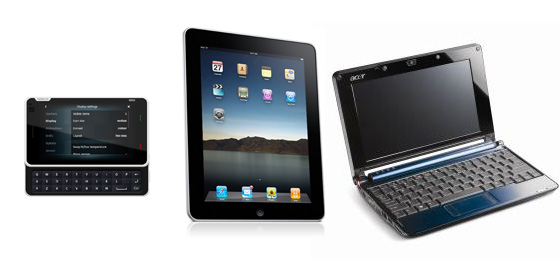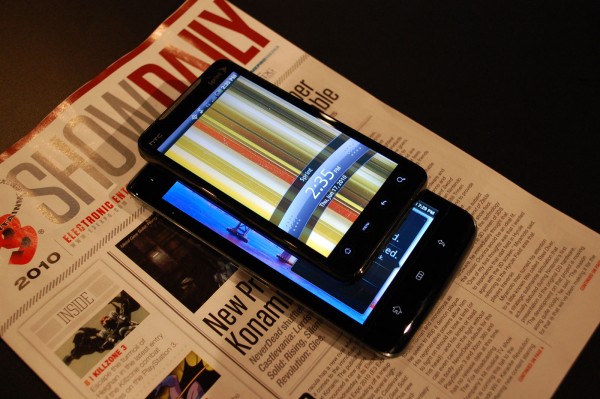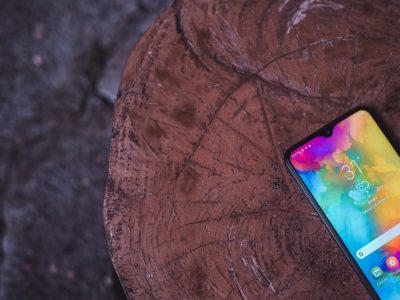When Apple does something, the entire market sits up and takes notice. Every time it has launched an innovative device, the market heads in an entirely new direction. Apple did it in 2001 with the iPod, then in 2003 with the iTunes store, then again in 2007 with the iPhone. In 2010, Apple couldn’t resist itself yet another time when it launched the iPad.
During the keynote, Steve Jobs mentioned the raison d’etre for the iPad.
“All of us use laptops and smartphones now. Is there room for a third device in the middle, between a laptop and a smartphone?”
The idea, apparently, was to fill the gap between notebooks and smartphones.

What about netbooks?
Steve Jobs had this to say about netbooks:
“…netbooks aren’t better at anything. They’re slow, have clunky displays, and run clunky old PC software. They’re just cheap laptops.”
And with that, he introduced the iPad – yet another gadget by Apple that would send its competitors scrambling to develop their own tablets. And since Steve Jobs said tablets shouldn’t run PC software, it became the general consensus that they shouldn’t . No one questions Steve Jobs.
So it came to be that a few months after the iPad, there came a slew of Android tablets. The Samsung Galaxy Tab is arguably the best amongst the Android offerings.
RIM announced a tablet with the Blackberry OS customized for the Playbook.
The HP Slate 500, running the Windows 7 OS, ran into much ridicule for no fault other than that it ran a desktop OS.
Just bigger phones?
So if these devices are all running OSes meant for phones, what sets them apart from phones? Nothing, really, except for their bigger screens. Apple introduced an updated version of its iOS (iOS 4.2) specifically for the iPad. No such luck for the Android tablets however. And with RIM’s playbook and HP’s Slate 500 still not in the mass market, consumers are left with nothing more than oversized phones.
But here’s the problem, though – if tablets and smartphones are separated only by their screen sizes, then at what screen size does a smartphone become a tablet? iPad maintained a comfortable distance – it was ten inches across, much bigger than any smartphone will ever get.
The line gets more blurred
Just when we thought we had things figured out about screen sizes, Dell had to come in and announce the Dell Streak. At a screen size of 5 inches across, Dell officially marketed it as a tablet, albeit one that could make phone calls.

So if it’s a tablet that makes phone calls, isn’t it technically a phone too?
“No,” you would say, “it’s too big.”
But then what about the HTC Evo? It has a screen size of 4.3”. The Streak is just one step above it. Why, then, isn’t the Evo called a tablet as well?
“Ok,” you go, “let’s just say that anything bigger than 4.3 inches is a tablet, ok?”
Ok, so we will agree on that for the time being, just for the sake of taking the argument further.
Which other feature separates smartphones from tablets from netbooks? A physical keyboard, that’s what. Tablets are these huge touchscreen devices with no keyboard. Netbooks are the ‘clunky’ devices with keyboards. Smartphones may or may not have a keyboard, but they are small (!!!).
But how correct is this argument? If rumors are to be believed, Samsung is working on a Windows tablet codenamed Gloria, and it has a slide out keyboard.
And it will get even more blurred soon
So the line between tablets and smartphones is well and truly blurred now. Thankfully, netbooks and tablets run different OSes. Netbooks are cheap laptops that run desktop OSes. Tablets are beautiful gadgets that run beautiful smartphone OSes. At least we can still distinguish netbooks from tablets.
Or can we?
What about Meego? It is a Linux based OS that will be running on all three platforms – smartphones, tablets and netbooks.
What about Chrome OS? It won’t be long before someone decides to put that on a tablet device, even though it is meant for netbooks.
What about Windows? Rumor mills are spinning, and the word on the street is that Windows 8 is being optimized for tablet usage. The rumors might well be true. We believe them for two reasons: One, Microsoft won’t allow the use of Windows Phone 7 on tablets. Two, Microsoft is not one to let the tablet market just slip away from it.
So the one thing that so far separates netbooks from tablets – the OS – is about to change too. What we will be left with, then, is a choice between a smartphone, a big smartphone or a very big smartphone with a physical keyboard. It will be difficult to distinguish smartphones from tablets and tablet from netbooks, and we will be relying on simply marketing speak to classify a gadget.
Do we have too many devices?
So when Steve Jobs announced the iPad to fill the gap between smartphones and netbooks, he not only created a whole new market, but changed the course of existing ones as well. If consumers are suffering from indecision now (Dell Streak or small smartphone + iPad?), they are going to be a lot more confused come 2011, when the lines get even more blurred. Consumers will start looking for a reason to carry around three separate devices, when just one can perform the functions of all three.
The market has well and truly changed.










Comments